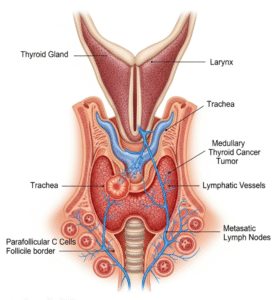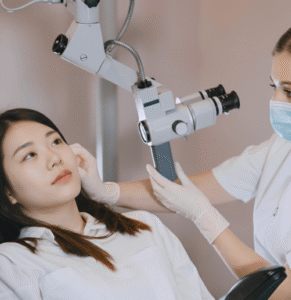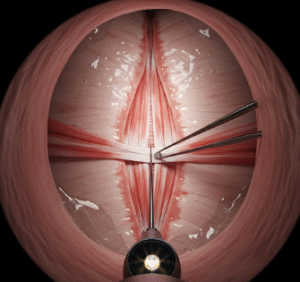Overview
The common cold is a mild viral infection of the upper respiratory tract, primarily affecting the nose and throat. It is highly contagious and widespread in Korea, especially during seasonal changes. While usually self-limiting, proper care can reduce symptoms and prevent complications. Korean clinics and hospitals provide supportive treatment and guidance for effective management.
What is the Common Cold?
The common cold is caused by various viruses, most commonly rhinoviruses. It leads to inflammation of the nasal passages, throat, and upper airways. Although usually mild, it can occasionally exacerbate underlying conditions like asthma or chronic bronchitis.
Symptoms
- Runny or stuffy nose
- Sneezing
- Sore throat
- Mild cough
- Low-grade fever (sometimes)
- Fatigue and mild body aches
- Headache or watery eyes
Causes
- Viral infections, particularly rhinoviruses, coronaviruses, adenoviruses, and respiratory syncytial virus (RSV)
- Close contact with infected individuals (airborne droplets, direct touch)
- Contaminated surfaces and poor hand hygiene
Risk Factors
- Young children and elderly individuals
- Weakened immune system or chronic illnesses
- Frequent exposure to crowded environments (schools, workplaces, public transport)
- Seasonal changes, particularly winter and rainy seasons
- Smoking or exposure to second-hand smoke
Complications
- Sinus infections or sinusitis
- Ear infections (otitis media)
- Worsening of asthma or chronic respiratory conditions
- Rarely, pneumonia in vulnerable populations
Prevention
- Frequent handwashing and good personal hygiene
- Avoiding close contact with infected individuals
- Wearing masks during outbreaks or crowded settings
- Maintaining a healthy diet and lifestyle to support immune function
- Proper vaccination for related respiratory viruses (e.g., influenza)
Treatment Options in Korea
Treatment is primarily symptomatic and supportive, as there is no cure for viral colds:
- Home and Supportive Care
- Rest and adequate hydration
- Warm fluids and saline nasal sprays to ease congestion
- Honey for soothing throat irritation (for adults and children above 1 year)
- Medication
- Over-the-counter pain relievers (acetaminophen, ibuprofen) for fever or aches
- Decongestants or antihistamines to relieve nasal symptoms
- Cough suppressants or expectorants if necessary
- Medical Care
- Pediatric or adult clinics provide assessment if symptoms persist or worsen
- Monitoring for secondary infections in high-risk individuals













